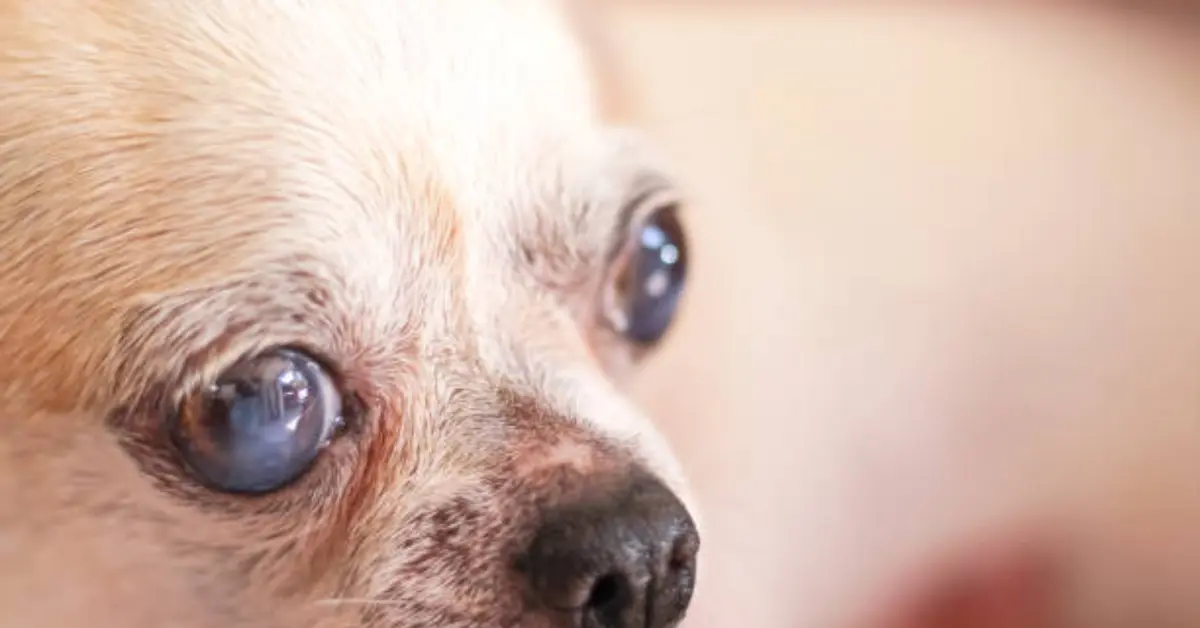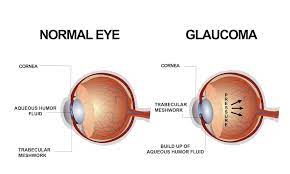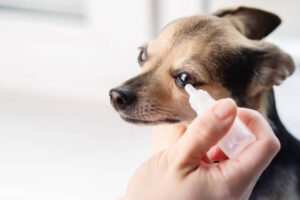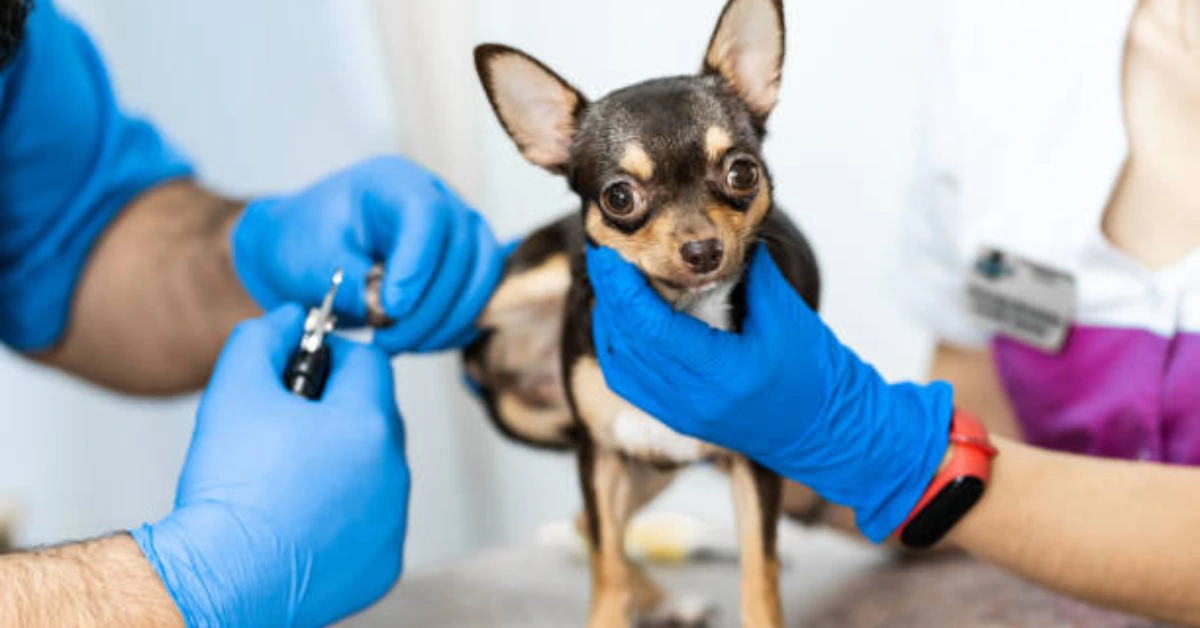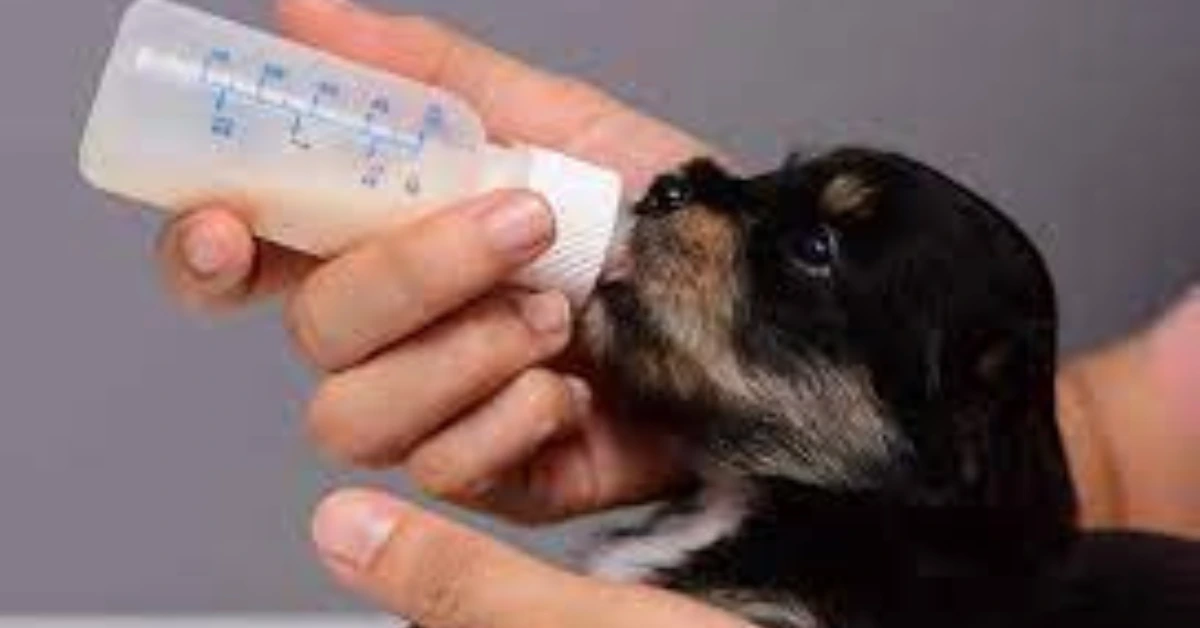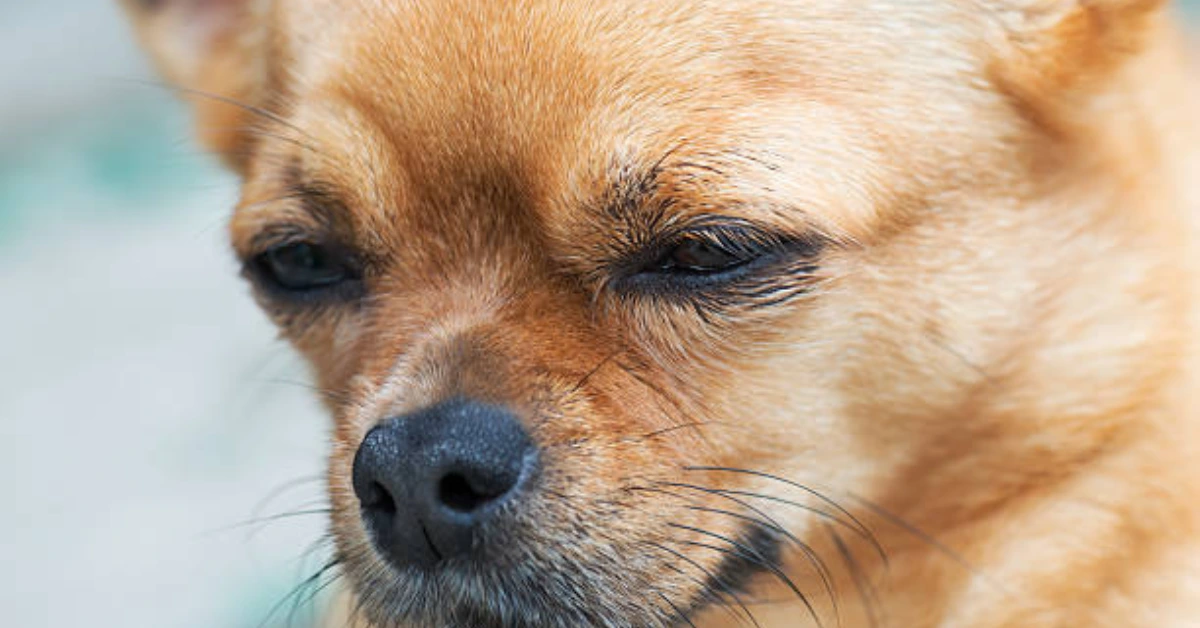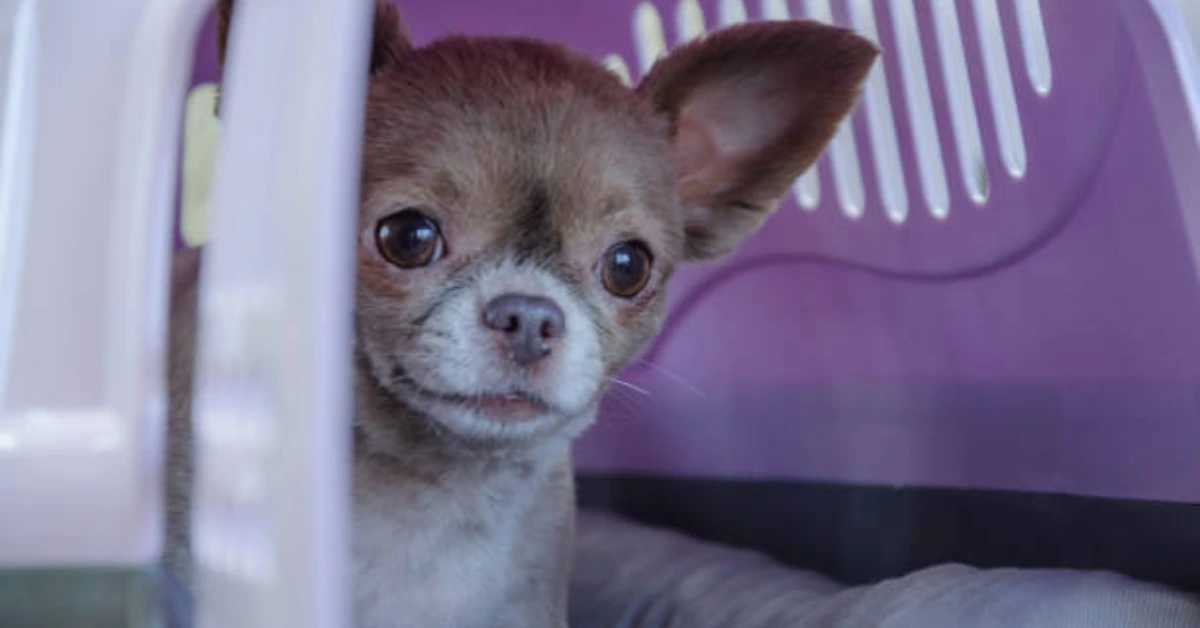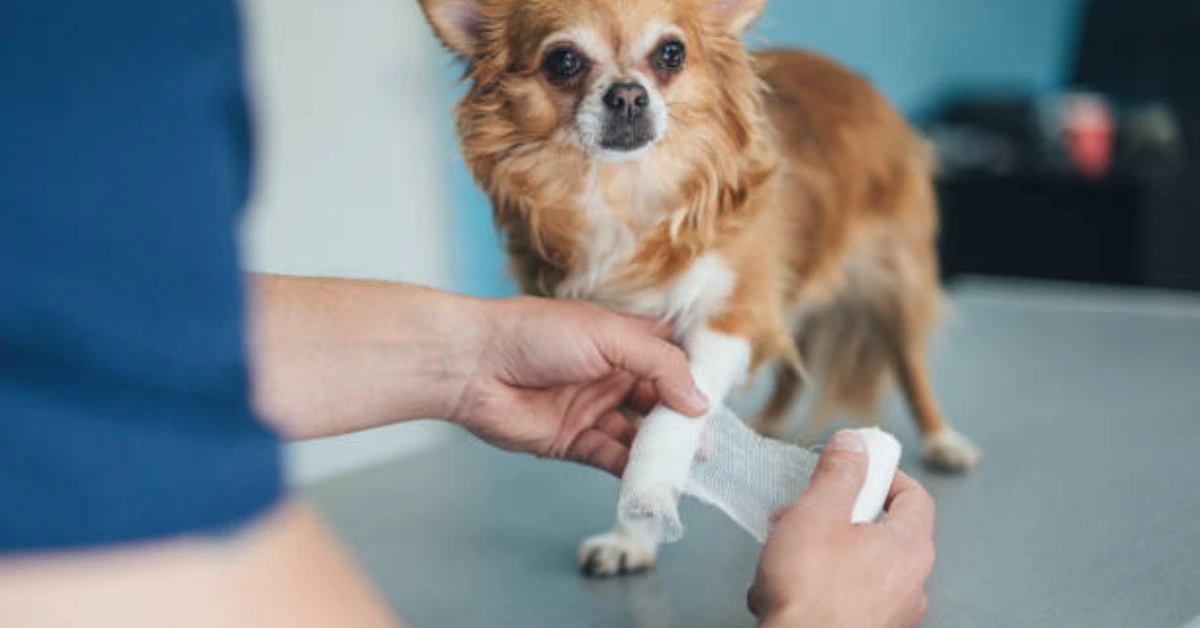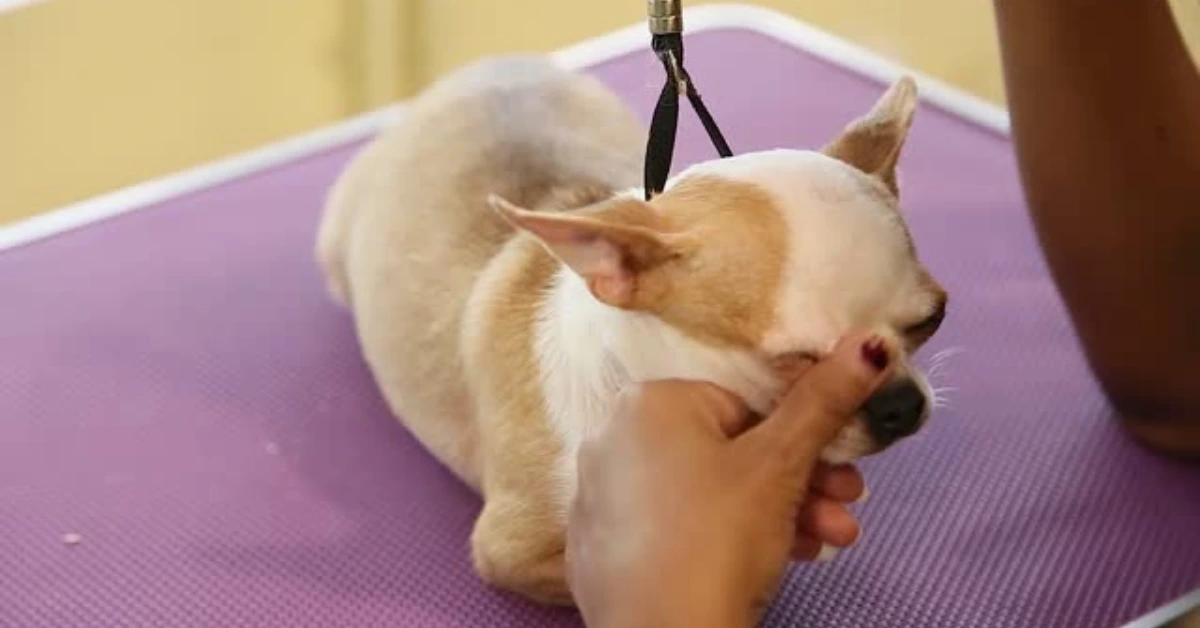Getting the news that your pet Chihuahua has glaucoma can be scary, but it doesn’t have to be. With the right treatment and precautions, you can help improve your Chihuahua’s quality of life and even lower the chance that they will get this eye problem.
In this blog post, we’ll talk about how to treat and avoid glaucoma in Chihuahuas, including what signs to look out for and what treatments are available.
If you know how to care for your Chihuahua if they get blindness, you’ll feel more prepared as a Chihuahua parent if or when the time comes.
Advertisement
The Definition Of Glaucoma
Glaucoma happens when a fluid called aqueous humor builds up in the eye and makes the pressure inside the eye go up.
This fluid feeds and oxygenates the eye, and it usually drains out through a space called the filtration angle between the iris and the cornea.
When this balance is thrown off and the fluid doesn’t drain properly, pressure builds up and can damage the retina and optic disk, causing lifelong blindness.
Types Of Glaucoma In Chihuahuas
Glaucoma in Chihuahuas can be either Primary or secondary.
Primary Glaucoma
It is usually passed down and is either “open angle” or “closed angle,” which affects the filtration angle and makes it hard for watery humor to drain properly.
Primary open-angle glaucoma happens slowly, but primary closed-angle glaucoma, also called Goniodysgenesis, happens quickly.
Secondary Glaucoma
On the other hand, secondary glaucoma is more common in Chihuahuas and is caused by an underlying eye disease.
Glaucoma can affect one or both eyes, and the untreated eye often gets it within a year of the first eye being diagnosed.
Symptoms Of Glaucoma In Chihuahuas
It can be hard to spot the early signs of blindness in Chihuahuas. But as the disease gets worse, the signs can become more obvious.
These signs could come on quickly or slowly and could include:
- Your Chihuahua has gone blind.
- The dog is rubbing its eyes.
- Your dog’s eyes are red.
- The Chihuahua in your house is rubbing his eyes.
- Your Chihuahua has eyes that are hazy and cloudy.
- The eyes of your Chihuahua are too big.
- Your Chihuahua’s pupils are big, move slowly, and don’t respond.
- Your Chihuahua’s eyes are shut.
The Diagnosis Of Glaucoma In Chihuahuas
Make an appointment with your veterinarian as soon as possible if your Chihuahua exhibits signs of glaucoma. Give your veterinarian the full medical history of your Chihuahua, including information on any prior eye injuries or problems, as well as a description of the symptoms and their development.
After that, the veterinarian will examine your Chihuahua’s eyes to look for any possible visual problems. They will measure intraocular pressure with a tonometer; this should typically be within the range of 15 to 25 mm Hg.
But glaucoma-affected Chihuahuas can have pressure as high as 45 to 60 mm Hg. The veterinarian will also thoroughly examine your Chihuahua’s eyes to look for any more anomalies.
Your veterinarian might advise seeking further testing from a veterinary ophthalmologist if your Chihuahua’s eye health is questionable.
A gonioscopy is one of these examinations; in Chihuahuas with Goniodysgenesis, it measures filtration angles; electroretinography analyzes retinal function. Even if it appears that just one eye is impacted, both eyes will be examined in great detail.
The Treatment Of Glaucoma In Chihuahuas
Glaucoma is a medical emergency because you could go blind for good within hours if you don’t get treatment right away to lower the pressure inside your eye.
Medication or treatment is used to lower pressure, ease pain, improve drainage, and stop the body from making as much aqueous humor.
Some medicines increase drainage and lower production, while others can be taken as pills or eye drops to relieve pain. But if your Chihuahua has already lost some of its eyes, it may need surgery.
Medication
Most eye medicines come in the form of drops or ointments that you put on your dog’s eyes. They work to lower eye pressure and treat redness or infections. Usually, you have to give them three times a day for a certain amount of time. Some drugs are taken by mouth.
There are many kinds of medicines, such as beta-blockers, which stop the body from making as much fluid, carbonic anhydrase inhibitor diuretics, which also stop the body from making as much fluid, corticosteroids, which control inflammation, and more.
Osmotic diuretics are used to dry out the eye, but if your chihuahua has diabetes or heart disease, use them with care. Prostaglandin analogs can help improve the flow of fluid out of the eye, and cholinesterase inhibitors can delay the start of glaucoma in the eye that doesn’t have it.
Surgery
Your vet can perform Surgery for primary or secondary glaucoma. Several surgical techniques are possible for your Chihuahua, based on the severity of the condition and the degree of eyesight damage:
- Cyclophotocoagulation: The secretory epithelium of the ciliary body in the eye, which regulates fluid production, is removed by the laser device.
- Gonioimplantation: To create an outlet for fluid drainage, the surgeon implants a shunt, which is a tiny tube.
- Enucleation: Complete removal of the eyeball is a feasible option in severe situations or when other therapies are insufficient. This means your vet must remove your Chihuahua’s eye globe completely.
Glaucoma In Chihuahuas Prevention
Although Chihuahuas cannot avoid inherited primary glaucoma, early discovery through routine eye monitoring can help with timely treatment.
Especially for Chihuahuas that are at risk of glaucoma, regular eye exams are crucial. In Chihuahua, the best defense against secondary glaucoma is the prevention of ocular damage.
Glaucoma In Chihuahuas Prognosis
The outlook for your Chihuahua’s glaucoma varies on a number of things. Your Chihuahua can heal from glaucoma without major eye damage if it you treat it quickly and well. But it’s important to keep up with treatment to keep eye pressure from getting worse in the future.
Chihuahuas can lose their sight if they don’t get treatment on time or if the treatment doesn’t work well enough. However, even blind Chihuahuas can live healthy lives with the help of a vet or animal trainer who specializes in blindness.
Glaucoma can sometimes be the result of diseases like cancer that are going on in the body. Your vet will talk to you about your Chihuahua’s situation and look into possible treatments for the disease.
Note that the tips in this post are not meant to be medical advice for your chihuahua. Instead, they can be helpful. Please make an appointment with your vet so that he can figure out what’s wrong with your pet.
YOU MAY ALSO LIKE:
Conjunctivitis in Chihuahuas, Treatment And Prevention
Cataracts In Chihuahuas, Treatment And Prevention
Advertisement

